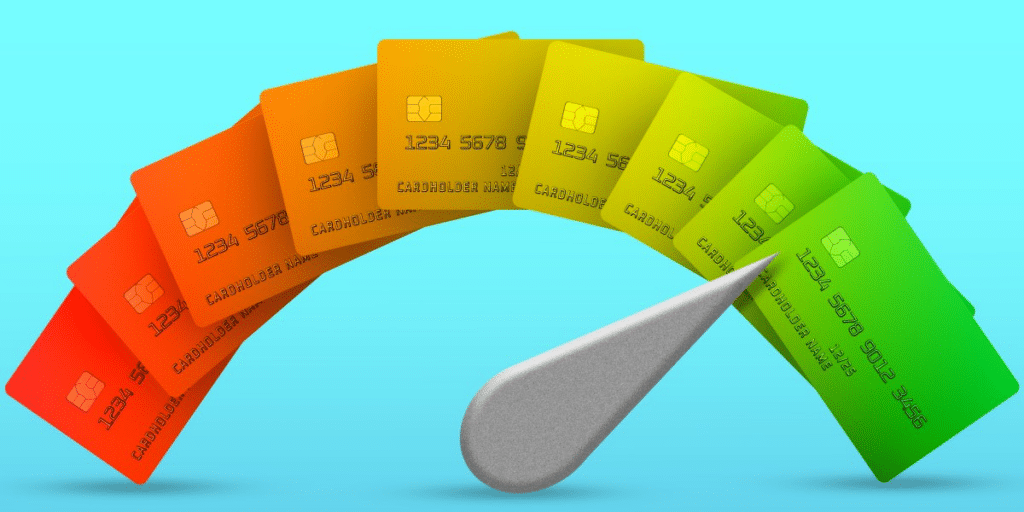Building credit: starter card strategies

Starting your journey towards building your financial reputation can sometimes feel like a maze. But don't worry, we're here to guide you through with some beginner-friendly strategies for building credit. It's not as daunting as it seems, promise!
Whether you're new to the credit game or just looking to boost your score, getting your first credit card is a pivotal step. But, navigating through the myriad of options can be overwhelming. Let’s simplify this, shall we?
From understanding the difference between secured and unsecured cards to managing multiple cards for optimum credit health, we've got your back. Let’s embark on this credit-boosting journey together!
First things first: Choosing your first credit card
So, you're ready to dive into the world of credit, huh? Choosing your first card is crucial. Think of it as picking your dance partner for credit-building—it's got to be the right fit.
When you’re starting out, secured credit cards are often recommended. Why? Because they’re like training wheels for credit. You put down a deposit, which usually becomes your credit limit. It's a way to show the credit world you're trustworthy without a high risk.
For more insights on choosing between secured or unsecured cards, check out our detailed comparison: Secured vs unsecured: what's best for you.
Remember, the goal here is to build credit, not to indulge in spending sprees. So, look for a card with low fees, a reasonable interest rate, and positive reviews for credit-building effectiveness.
Behold the credit utilization ratio
Once you’ve got your card, it’s not just about spending; it’s how you spend. Enter the credit utilization ratio, also known as how much you owe compared to your total credit limit. It's a big deal in the credit score world.
Keeping your utilization under 30% is the golden rule. Low utilization signals to lenders that you're managing your credit well, not maxing out your cards. It shows you're financially stable and can handle credit judiciously.
For example, if your credit limit is $1,000, try to keep your balance under $300. This discipline can boost your credit score more swiftly than you might think.
Curious about how certain cards can help you elevate your score quickly? Peek at: Credit cards that boost your score fast.
Payment discipline: Your credit score’s best friend
Building credit isn’t just about having cards; it’s more about how you use them. And there’s nothing credit bureaus love more than punctual payments.
Always pay your bills on time. Even a single late payment can ding your score significantly. If remembering due dates isn’t your forte, consider setting up automatic payments or calendar reminders.
Consistent, on-time payments over time are a surefire way to show lenders you're trustworthy. Plus, it keeps you out of debt. Win-win!
Also, pay more than the minimum whenever possible. It helps reduce your total credit utilization and pays down debt faster.
Diving into rewards responsibly
Once you’re comfortable with managing your first card, you might start eyeing cards with perks. Travel miles, cash back, you name it. However, tread carefully; rewards cards are best suited for those who have their credit usage firmly under control.
Why? Because with great rewards come great temptations to overspend. Remember, the aim is to build credit, not debt. Always prioritize your budget and financial goals over the lure of rewards.
Thinking about expanding your credit card portfolio? Here’s everything you need to know: Managing multiple cards for credit health.
Mistakes happen: Dealing with bumps on the credit road
Nobody's perfect, and that includes managing credit. If you make a mistake, like missing a payment or overusing your card, don’t panic. Most blemishes on your credit report will fade with time and consistent good behavior.
The key is to recognize the slip-up, rectify it, and learn from the experience. Always strive for better credit management strategies moving forward.
And remember, building credit is a marathon, not a sprint. Patience and persistence are your allies.
Your Credit Building FAQs
{FAQ}
{FAQ_ITEM}
{FAQ_TITULO}What’s the best way to choose my first credit card?{/FAQ_TITULO}
{FAQ_CONTEUDO}Look for cards geared towards beginners, like secured credit cards or those with a focus on building credit. Prioritize low fees and a clear path to upgrading to a better card. Don’t forget to read reviews and possibly consult with a financial advisor.{/FAQ_CONTEUDO}
{/FAQ_ITEM}
{FAQ_ITEM}
{FAQ_TITULO}How can I improve my credit score quickly?{/FAQ_TITULO}
{FAQ_CONTEUDO}Keep your credit utilization low, always pay your bills on time, and use a mix of credit types responsibly. Consistency is key. Also, consider cards designed to enhance your score rapidly. Check our guide: Credit cards that boost your score fast.{/FAQ_CONTEUDO}
{/FAQ_ITEM}
{FAQ_ITEM}
{FAQ_TITULO}Is it bad to have multiple credit cards?{/FAQ_TITULO}
{FAQ_CONTEUDO}Not necessarily, as long as you manage them well. Multiple cards can help improve your credit utilization ratio and provide more diverse credit history. The challenge is to avoid overspending and manage multiple due dates. For tips, see: Managing multiple cards for credit health.{/FAQ_CONTEUDO}
{/FAQ_ITEM}
{/FAQ}
Building a bright credit future
Starting your credit-building journey with the right strategies can set you up for a future of financial success. Remember, it’s about making informed choices, maintaining discipline, and being patient.
Whether it’s choosing your first credit card, managing your spending, or dealing with mishaps, every step you take matters. Your credit won’t skyrocket overnight, but with consistent effort, you’ll see significant improvements.
So, gear up, embrace the journey, and watch as your financial reputation flourishes. Here’s to building a strong credit foundation—one smart move at a time!
Happy credit building!

Related